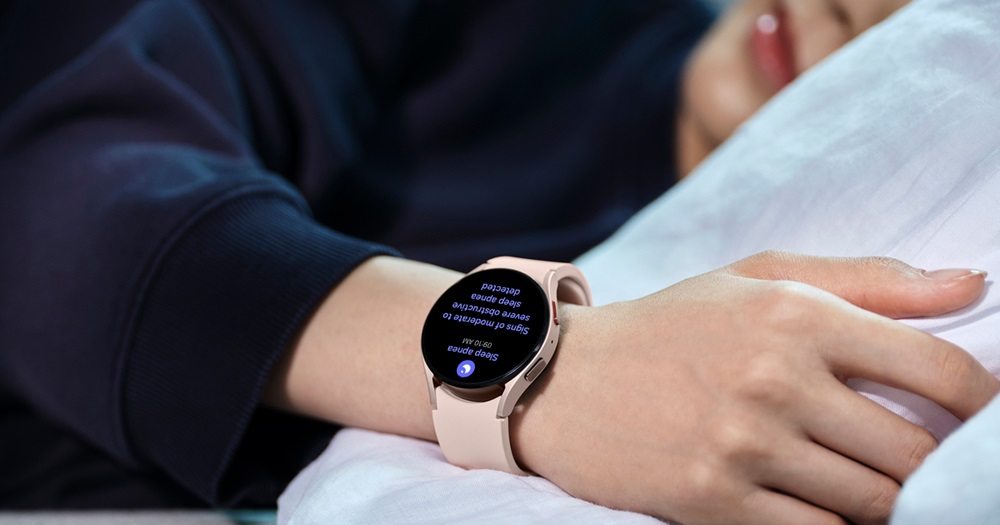Samsung, Stanford Medicine team up to advance sleep apnea detection

In a move that blends cutting-edge tech with top-tier medical research, Samsung is teaming up with Stanford Medicine to take a closer look at how wearables can help people sleep — and breathe — better. The big idea? Use the Galaxy Watch not just to detect obstructive sleep apnea (OSA), but eventually help folks manage it day by day.
Launched in time for World Health Day, this partnership feels less like a corporate announcement and more like a wake-up call. Because let's be real — sleep health isn't a luxury. It's the baseline for everything else.
"We are excited about this groundbreaking collaboration and proud to be initiating a study utilizing smartwatches, a friendly and commonly accepted wearable," said Dr. Robson Capasso, the Stanford professor leading the research.
How does it work?
The Galaxy Watch's Sleep Apnea feature already spots signs of moderate to severe OSA while you sleep. It does this by tracking your blood oxygen levels and breathing patterns throughout the night. If things look off, it flags them — simple as that.
- The feature has FDA De Novo authorization, meaning it's the first of its kind in the U.S.
- It's also greenlit by Korea's MFDS and Brazil's ANVISA, bringing it to nearly 30 countries and counting.
- And now, researchers want to move past detection and dive into management — which means tracking, analyzing, and nudging you toward better sleep in real-time.
What's cooking next is the fusion of AI with this existing tool, turning it into something that doesn't just ring the alarm bell but helps fix the problem.
"Together, we aim to move beyond screening to also provide more meaningful daily support," said Dr. Hon Pak, Samsung's digital health chief.
Why does it matter?
Because sleep apnea doesn't just mess with your rest — it drags your whole health down. Think heart problems, fatigue, brain fog. And it often goes undiagnosed for years. That's the scary part.
So the question is: what if your watch could catch it early? And better yet, help you deal with it?
- A discreet, wearable solution means people can monitor their sleep without needing bulky devices or overnight lab visits.
- With the right prompts and data, users could make lifestyle changes before things spiral.
- It's about proactive care, not just reactive treatment.
"The ethical, equitable and evidence-based use of technology, after its validation through research, is crucial," Dr. Capasso emphasized.
The context
Sleep apnea is everywhere — and most folks don't even know they have it. That's why this collaboration matters.
Samsung's sleep tech isn't new, but this level of global medical backing is. Having the FDA, Korea's MFDS, and Brazil's ANVISA on board shows a shift in how seriously wearables are being taken in healthcare.
And Stanford? They're not in this for the PR. With experts like Dr. Capasso and Dr. Clete Kushida at the helm, this isn't just tech hype — it's research with teeth.
At the end of the day, this is about meeting people where they are: in bed, watch on wrist, and probably unaware that something's wrong. That's where the Galaxy Watch comes in — quietly gathering clues and offering a new kind of lifeline, one night at a time.
💡Did you know?
You can take your DHArab experience to the next level with our Premium Membership.👉 Click here to learn more
🛠️Featured tool
 Easy-Peasy
Easy-Peasy
An all-in-one AI tool offering the ability to build no-code AI Bots, create articles & social media posts, convert text into natural speech in 40+ languages, create and edit images, generate videos, and more.
👉 Click here to learn more


